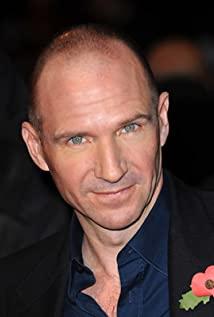They appear in the movie in the order they appear above, which I have to say is very Cunning, even too cunning. Because we can answer the second question perfectly, but we can only be speechless about the first question - just like the chief judge who stood on the moral high ground and asked Hanan, and everyone who was present at the trial at that time. In fact, I believe that no matter in that corner of the universe, no matter how perfect the intelligent creatures or objects evolve, they can only fall into the momentary silence of all things, just like them and us who have been in front of the screen for 40 years.
Yes.
Out of context, the part of speech "loyal to duty" is a compliment of praise. Coincidentally, by coincidence, here, one in ten thousand rare, it has become a derogatory term that everyone hates and disgusts. (Not everyone, at least Hanan didn't feel that way at the time—Hanan's for granted, and the only problem this film addresses.) That's where the paradox happens. As the professor in the film said, "Society operates on the basis of law, not morality." The good operation of a society must be based on a legal system (punishment system) recognized by the majority of the public at that time. public base. However, must the law recognized by the majority "at the time" be at least a law that does not violate "natural law"? Must it be at least not a law of "evil" law? Must it be a law that can be at least understood by people of "later generations"?
Answer? Everyone knows: no, never.
So what do we do if we happen to come across such a law? what will you do?
Here, first ask a question: How can we realize that such a law exists? After all, if people do not realize that such laws are abnormal and unreasonable, then naturally there will be nothing and nothing will be done. But sadly, I don't know the answer; sadly, I know that the reading implied by the film itself is likewise not the key to opening the door. Because the laws were recognized by the majority of that social group at the time, it is very logical to assume that not many people realize that these laws are bad laws. Is it possible that people who don't realize it can't read and write? Obviously not. So, at least, reading is not a guarantee.
Even if we were fortunate enough to realize it?
Then ask another question: How can I convince myself that such a judgment is not the result of my persecution delusion, but a conclusion based on objective facts through correct (conscientious) logical deduction? look funny? Maybe. But it's actually the same principle as "drunk people believe 'I'm not drunk'", and unfortunately, it's just as difficult as knowing you're "drunk" when you're drunk.
Judgment without reflection is worthless.
Unthinking persistence, or paranoia, is more likely to be the scourge.
Suppose we are fortunate enough to determine that our conclusions are correct - the current law is "evil", it is against the laws of nature, and it is against human nature, then what?
What would yo do?
An active struggle full of justice and blood?
Appreciate it.
But how?
The violence of a state apparatus is unstoppable by any individual.
Those who stand in the way die.
It doesn't even matter if it's just death, just what if there's nothing left to die for?
In fact, no tyranny of the majority throughout the ages has been overthrown by the minority.
Either the torrent of time breaches the once indestructible "justice of the majority" - eg, slavery; or the fusion of space reverses the "majority" and the "minority" - eg, the Nazis.
Although, "If you don't accumulate a few steps, you can't reach a thousand miles; if you don't accumulate a small stream, you can't make a river or sea." In order to stop the wanton rush of historical torrents, it is necessary and unavoidable to build dikes little by little.
However, if I travel back to the United States in 1800 and shout "Slaves are not allowed!", it may still have a slight effect, but when I travel back to the United States in 1600, who cares about me?
In fact, the failed efforts we have seen have been started at the right time.
Prophet is the most vicious curse.
One more question I'd love to ask: "Who is qualified to judge whom?"
Who gave the judge in The Reader's trial the qualifications to judge someone else's guilt?
In the film, a law student flees the classroom overwhelmed when he hears "We are all guilty." This view, which was convinced by many people after World War II, was sharply raised by one of his classmates. Many people will too. Because we are all guilty.
So, what does the guilty "I" use to judge others?
I've been thinking about what the teenage male protagonist said: We need to know why. I was wondering, in those circumstances, if a person did what he/she was assigned to do - like freeing a Jewish prisoner in captivity, would they be threatened with their lives - like being secretly charged for treason put to death?
If so, that is, those grand trials are actually forcing a person to voluntarily sacrifice one's own life - suicide - to do the "right" thing, isn't it?
Sacrificing yourself for the "right thing" is a noble thing, and if anyone can do it, they are worthy of admiration, praise, admiration, and even worship. However, if a person can't do it, they should be criticized, scolded, despised, and even spurned. But should they be sentenced?
Fan Paopao gave up the lives of so many students for his own life, gave up his responsibility as a teacher and gave up his conscience, but in the end we can only punish him on the moral and economic level, not the legal level.
This is the limit of the law.
This film is a very good film, and it has been appreciated and analyzed from all angles by thousands of film critics written in various languages. It's just that I've always wanted to ask: what do we get if we reverse the order of these two questions?
Is it possible to be literate without blind obedience? Can reading be cruel? Can you break the text without making mistakes? Can writing change everything?
For Israelis, illiteracy is rarely a problem. But in the face of the Palestinians, they are rarely seen with tolerance and understanding. Blood for blood and tooth for tooth is the norm. There are not a few people who sincerely and sincerely hope that the other party will exterminate their clan.
As for love? That's a joke.
No matter how deep the love is, it is not worth a skin.
In the end, he could only step on the book, face the tape, and throw himself into death.
View more about The Reader reviews











